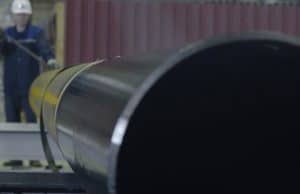 The impacts of technological improvements have been felt in every area of life, including more streamlined methods of electrical cooling. However, those impacts are often felt most in the various manufacturing fields that rely increasingly more heavily on technology to enhance their operations. When it comes to electrical cooling methods, the most significant advancements have come in the form of heat exchangers and their ability to transfer electrical waste heat. This not only made thermal management more efficient and reliable than more traditional solutions, like air conditioners, but also helped companies significantly improve the efficiency of many of their overall operations.
The impacts of technological improvements have been felt in every area of life, including more streamlined methods of electrical cooling. However, those impacts are often felt most in the various manufacturing fields that rely increasingly more heavily on technology to enhance their operations. When it comes to electrical cooling methods, the most significant advancements have come in the form of heat exchangers and their ability to transfer electrical waste heat. This not only made thermal management more efficient and reliable than more traditional solutions, like air conditioners, but also helped companies significantly improve the efficiency of many of their overall operations.
The role of streamlined thermal management
Electrical thermal management has played a significant role in manufacturing operations for as long as companies have used technology for those operations. The most common role is the use of electrical cooling solutions to prevent overheating within electrical enclosures, such as control panels. The electrical components within these enclosures constantly give off waste heat as they operate, and controlling this waste heat is essential to keeping vital applications running consistently. The ability to achieve consistent electrical cooling at minimal cost and with optimal efficiency is one of the most important advantages of streamlining thermal management in manufacturing settings.
The expanded benefits of better thermal management
The basic methods that heat exchangers utilize to keep electrical enclosures cool involve techniques such as natural/forced convection, conduction, and/or phase-change cooling. Each of these involves the efficient and natural transfer of heat rather than the use of consistently generated and circulated chilled air. The process of transferring heat is more streamlined than traditional thermal management methods, and doesn’t require as much of an investment in energy. In addition to the costs that this helps companies save, more streamlined thermal management has also helped benefit companies’ efforts to improve their eco-friendliness.
Industries that benefit most from heat exchangers
While companies in nearly every industry have benefited from the advancement of electrical cooling processes, those in different manufacturing fields can also take advantage of specialized thermal cooling solutions to enhance more than just electrical cooling processes. For instance, the use of heat exchangers has helped companies in food and beverage manufacturing, pharmaceutical packaging, advanced computing, and more create safer and more eco-friendly thermal management processes. For more information about manufacturing with the help of heat exchangers, call Noren Thermal Solutions in Taylor, TX, at 866-936-6736.







